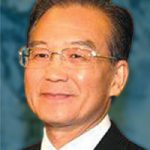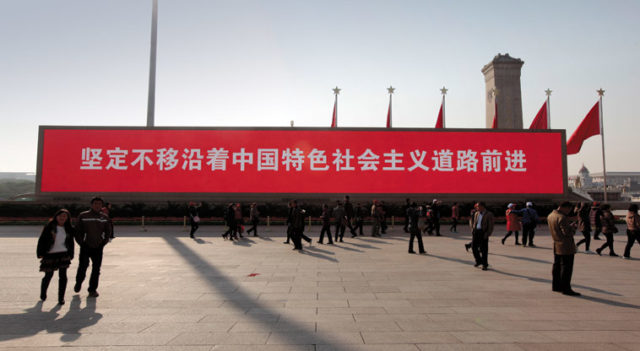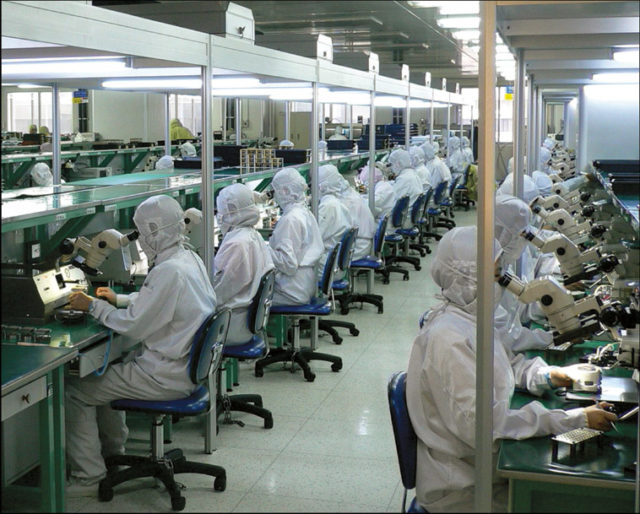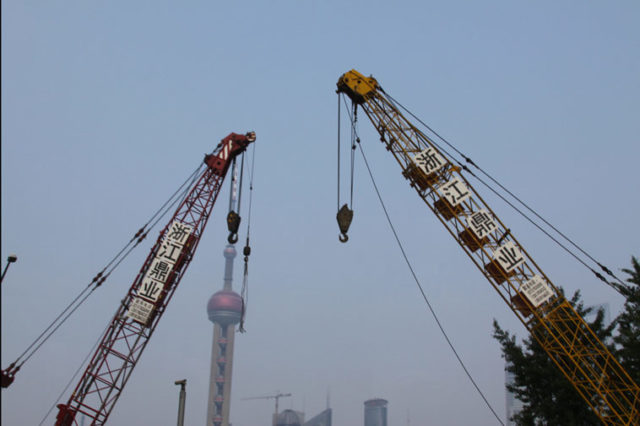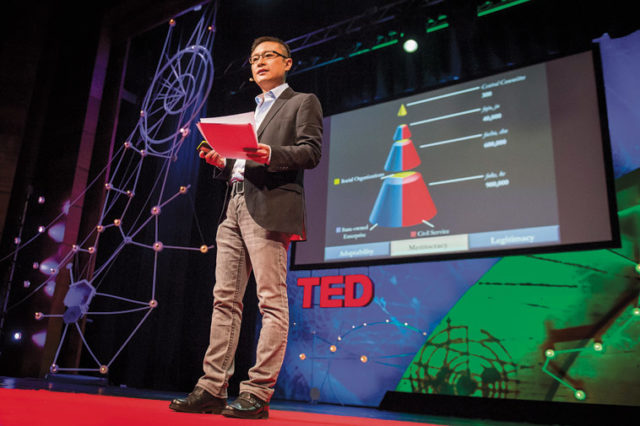
This chapter moves beyond the question of whether the Chinese economy is capitalist or socialist to reflect on the role of the Chinese state in developing a ‘civilised’ economy. Income inequality is one of the main challenges facing President Xi Jinping as he seeks to turn the China Dream into a reality for all Chinese people. Meanwhile, China’s emergence as a major global investor continues to challenge the rules, norms and institutions that govern the international economy, igniting highly charged debates about the role of the state in an increasingly globalised, but not always entirely civilised world.
Stirring the Soul
In 2012, Bloomberg News published a series of articles titled ‘Revolution to Riches’ that revealed the vast wealth accumulating in the hands of the descendants of China’s ‘Eight Immortals’ (the founding fathers of the People’s Republic) and other ‘princelings’. The series depicts an elite ‘red nobility’ among whom are President Xi Jinping’s ‘millionaire relations’: the ‘powerful leaders of state-owned conglomerates’ and their ‘jet-setting, Prada-accessorized grandchildren’. The New York Times similarly revealed the ‘hidden billions’ — some US$2.7 billion — of outgoing Premier Wen Jiabao’s son, daughter, younger brother, brother-in-law and other relatives in an investigative report that demonstrated ‘how politically connected people have profited from being at the intersection of government and business as state influence and private wealth converge in China’s fast-growing economy’. As China’s once-in-a-decade transition of power commenced, these were revelations that the Chinese Communist Party could have done without — even if most Chinese people didn’t have the chance to read them thanks to quick-acting censors.
In his debut speech as Premier in March 2013, Li Keqiang pledged to curb the power of bureaucrats, to reduce government spending and to provide a more level playing field for private enterprises. And President Xi Jinping introduced his anti-corruption campaign, vowing to fight the ‘tigers’ and ‘flies’ (powerful leaders and lowly bureaucrats), whose conspicuous displays of wealth have caused rising resentment among ‘ordinary’ Chinese. These were early signs that the new leaders are genuine in their desire to tackle vested interests. These vested interests include local governments, state-owned banks, politically influential families and the rising numbers of extremely wealthy Chinese who have clearly benefitted from China’s system as it is, but who are also inextricably linked to the pressing problems of corruption and income inequality as well as the difficulties that Chinese firms are facing in their drive to ‘go global’. Li Keqiang has acknowledged that ‘sometimes stirring vested interests may be more difficult than stirring the soul’. But he also knows that it is time to try.
At the Eighteenth National Party Congress in November 2012, outgoing President Hu Jintao stated that ‘the path of Socialism with Chinese Characteristics, the system of theories of Socialism with Chinese Characteristics and the Socialist System with Chinese Characteristics are the fundamental accomplishments of the Party and people in the course of arduous struggle over the past ninety-plus years’. To reiterate (and reiterate, and reiterate) this point, incoming President Xi Jinping used the formula ‘Socialism with Chinese Characteristics’ (Zhongguo tese shehuizhuyi 中国特色社会主义) seventyfive times in his own address to the Congress.
Deng Xiaoping is credited with promoting the theory of ‘Socialism with Chinese Characteristics’, the essential components of which are single-party rule, public ownership of the land, a dominant role for state ownership and state economic planning. These are all defining characteristics of the Chinese economy today. But Deng also famously emphasised: ‘The purpose of allowing some regions and some people to become prosperous before others is to enable all of them to prosper eventually. We have to make sure there is no polarisation of society — that’s what socialism means.’ For a regime so intent on stressing the socialist nature of its system, these are not words that can be ignored.
As Xi Jinping was stressing the socialist nature of China’s system, Nobel laureate and University of Chicago economist Ronald Coase and his co-author Ning Wang published a book entitled How China Became Capitalist. In it, they describe China’s accidental (and, they maintain, completed) transformation towards capitalism, ‘from a broken economy where the market and entrepreneurship were banned to a vibrant one where market forces prevail and private enterprises blossom’. Academic studies like Christopher McNally’s work on ‘Sino-capitalism’ in the journal World Politics, and Capitalism with Chinese Characteristics by MIT professor Yasheng Huang, more accurately depict a dual reality of a bottom-up, entrepreneurial, market-driven China and a top-down, state-controlled China. And the Leiden-based academic Frank Pieke describes China’s system as ‘neo-socialism’, in which the state has selectively and gradually, but not ‘fully retreated from the markets which its own policies have created, retaining a role for governments, state agencies, or state-owned enterprises as providers, regulators, and quite often also as major stakeholders’.
Where McNally stresses the importance of political relationships or guanxi 关系 networks for China’s private entrepreneurs, Kjeld Erik Brødsgaard of the Copenhagen Business School focuses on the top-down, state-controlled half of the system. His notion of ‘integrated fragmentation’ reflects how state-owned enterprises (SOEs) have become autonomous (that is, fragmented), powerful, rich ‘global giants’ that nevertheless remain deeply integrated in the Party’s rhetoric. This is the system that directly appoints or recommends close to 4,000 positions at ministerial and vice-ministerial level, including the CEOs of fifty-three major companies in ‘strategic’ sectors. The ‘revolving doors’ between politics and business provide the party elite with access to high-paying jobs (with the top CEOs earning more than 100 times the official governor’s salary of RMB120,000), generating a web of vested interests throughout the system and creating an ‘iron triangle’ of state–party–business interests. This is neither ‘completed’ capitalism nor what Deng had in mind.
A review of the scholarly literature outside China thus shows that there is very little consensus about what China’s economic system is, let alone what it should or could be. For many observers outside China, the bottom-up, entrepreneurial half of Chinese capitalism is the ‘good’ capitalism, and they maintain that China has prospered whenever this has been allowed to dominate — in the 1980s, for example, but not in the 1990s, according to Yasheng Huang, thanks to policy reversals that reinstated the state’s control over the economy. He has less to say about China’s economic successes this century, including the rapid urbanisation that has lifted millions of people from rural poverty, the emergence of China as the fifth largest global investor and its high and sustained rates of growth during the global financial crisis. Some would argue that these achievements were not in spite of the large and growing state-controlled segment of the economy, but because of it.
That said, the system has also created problems for China on an unprecedented scale. The savings of households deposited in low-interest bearing accounts in state-owned banks have been channelled towards large SOEs, local governments, export industries and overseas investment. Local governments have accumulated, if anyone can accurately measure such things, more than eleven trillion yuan (US$1.8 trillion) of debt, much of which appears to have been invested in projects of questionable economic value. According to the prominent independent Chinese think tank Unirule, China’s state-owned and state-controlled companies may, in fact, have been operating in the red between 2001 and 2009 if you take into account their access to land at below-market prices, the unpaid use or acquisition of national resources, the cheap credit provided through the state banking system and other subsidies. This has resulted in a potentially unstable and highly inequitable domestic economy, in which 251 billionaires and 2.7 million millionaires (in US dollar terms) live alongside 180 million people who must survive on under US$1.25 per day.
None of this heralds the imminent collapse of China’s economy. The wealthy party-state has access to US$3.2 trillion of foreign assets held by the People’s Bank of China and US$1.2 trillion in assets of one other state-owned bank, the China Development Bank (CDB), alone. These reserves have the potential to prevent such a disaster. It is true, nonetheless, that the nature of China’s economic system matters, and in an increasingly globalised world it matters for all of us. It is time for a civilised dialogue about why this is so.
Going Global
Over the last twelve months, there has been no shortage of heated debates regarding Chinese overseas direct investment (ODI), with contending views reflecting the complex and, for many, confusing role of the state in China’s rise to a position of global economic influence.
The issue has been highly contentious in Australia — the number one destination for Chinese ODI — with accumulated investments reaching US$51 billion in 2012. The Lowy Institute Poll 2012, an annual survey of Australian public opinion on foreign policy, revealed that the majority of Australians (fifty-six percent) think there is too much Chinese investment, even if most could probably not cite any figures, and they are most uncomfortable with investment by China’s SOEs. The release of these findings in June 2012 may or may not have influenced the Liberal Party leader Tony Abbott’s declaration at an Australian Chamber of Commerce speech in Beijing the following month that: ‘It would rarely be in Australia’s national interest to allow a foreign government or its agencies to control an Australian business’. Given that SOEs accounted for eighty-seven percent of China’s investment in Australia in 2012, this was a significant comment to make.
It is perfectly reasonable for governments to protect ‘national interests’, which is what Australia’s Foreign Investment Review Board has traditionally aimed to do. Yet many Chinese across the political and social spectrum perceive recent decisions by the Board and the Australian government, under the Labor Party from 2007, as singling out Chinese investment for tougher-than-normal scrutiny, and lacking in transparency about which national interests are being protected and from what. Together with the results of the Lowy survey, this not surprisingly offends would-be Chinese investors who, according to Li Ruogu, Chairman of China’s state-owned Export-Import Bank, are investing overseas on a purely commercial basis, rather than with any political, strategic or intelligence goals in mind. At the Boao Forum for Asia in April 2013, he noted that Chinese are becoming increasingly cautious about investing in Australia, and this may reduce inflows in the years ahead. As The Australian National University’s Luke Hurst and Peking University’s Bijun Wang put it in their jointly authored article ‘Australia’s dumb luck and Chinese investment’ published in East Asia Forum: ‘Australian policy naivety combined with a touch of xenophobia have undoubtedly played a role in choking back the growth and market access that sustained ODI would have otherwise brought’.
There is nothing civilised about xenophobia. Eric Anderson is even more explicit in his 2013 book titled Sinophobia: the Huawei story, in which he traces American suspicions of Huawei Technologies to a deep-rooted mistrust of anything Chinese. Huawei is a privately owned Chinese company that recently overtook Ericsson to become the largest telecommunications equipment company in the world. Huawei hit the headlines in Australia and the US in 2012 when the Australian government rejected the company’s proposed entry into the National Broadband Network on ‘national security’ grounds, and the US Congress released a report claiming that the use of Huawei’s networking equipment in the US could pose a ‘security risk’ and should therefore be avoided. In response, the chairman of Huawei Australia, John Lord, accused both countries of ‘raising protectionist walls against a privately owned company’, arguing that ‘in a globalised world with a global supply chain, the only viable solution to cyber security problems is collaboration between governments, technology vendors and operators’. In October 2012, a White House ordered classified inquiry into the security risks posed by foreign telecommunications suppliers to the US found no clear evidence to incriminate Huawei in anyway. In spite of this finding, suspicions have remained.
While I believe that John Lord is right, it is difficult to accept that the Chinese party-state has absolutely no influence on the operations of Huawei. The company, although ostensibly privately owned, has received tens of billions of dollars in lines of credit from the CDB during the last decade, and it maintains both personal and business connections with the government in ways that most outsiders simply don’t understand, in good part because the links are neither entirely declared nor transparent. This is not to say that the Chinese state would encourage these firms to engage in cyber warfare, but rather that it is hard to prove that it could not. That said, numerous other countries, including Britain, Canada and New Zealand, have not demanded this proof from Huawei, and the company has recently announced that it will no longer battle for the US market, focusing instead on the places where it has been made to feel welcome. Will Americans and Australians change their minds about Chinese investment when the economic consequences of its decline in their capital-hungry economies start to show?
Or are some of their suspicions well founded? The inextricable links between China’s state and market are epitomised by the operations of the CDB. In their 2012 book on ‘the world’s most powerful bank’, Henry Sanderson and Michael Forsythe explain how the wholly state-owned CDB finances its loans through bond sales, which are categorised as ‘zero risk’ because of their state backing, including a capital injection of US$20 billion in 2007. This enables the bank to provide finance in quantities that no other banks can match, including more than US$40 billion to Venezuela since 2008 and more than US$90 billion to China’s leading clean energy and telecommunication companies, of which the biggest recipient is Huawei Technologies. The book portrays CDB’s Chairman Chen Yuan (the son of one of the ‘Eight Immortals’ of the Party, Chen Yun) as a brilliant global banker who pioneered the system of local-government financing for domestic infrastructure projects, creating in the process an institution that is currently larger than the World Bank. They credit the CDB with financing a wide range of successful development projects at home and abroad using a range of innovative financial techniques. They conclude:
CDB is an extension of the Chinese state and the Communist Party, but it’s also the reflection of one man. Through the power and connections of Chen Yuan, CDB has managed to preserve enough independence from the government to make investment decisions and function at times as a commercially driven institution. But since it is owned by the Chinese state and in turn the Party, and has its capital provided cheaply by them, there is no doubt that China’s government will have a say in its future.
As Chen Yuan prepares to leave the CDB and head up the new BRICS (Brazil, Russia, India, China, South Africa) Development Bank announced in March 2013 and designed to fund infrastructure in emerging markets across the globe, this conclusion, if valid, has critical implications for global economic development in the future.
Murky links exist between political power and wealth everywhere in the world, not just in China — read David Uren’s 2012 book The Kingdom and the Quarry: China, Australia, Fear and Greed to see it at work in Australia, and see the Information Window on Huawei in this chapter for just two examples. What is unique to China is the accumulation of such extreme wealth in the intricate web of a one-party state, which is well on its way to governing the largest economy in the world. Alleviating the fear this generates requires better communication and greater transparency from the Chinese side about how their system works, and greater efforts to understand the nature of that system by everyone else.
Income Inequality
In January 2013, the Chinese National Bureau of Statistics released China’s Gini coefficients dating back to 2003. The coefficient had risen steadily to a peak of 0.491 in 2008, falling since then to 0.474 in 2012. (The index lies between 0, representing perfect equality, and 1, representing perfect inequality.) Despite the recent improvement, Ma Jiantang, the head of the Bureau, emphasised that China urgently needed to ‘speed up reform of the income distribution system to narrow the poor–rich gap’. The official Gini coefficient may substantially underestimate this gap: one Chinese academic study revealed a Gini coefficient of 0.61 for China in 2010, which would rank China among the most unequal countries in the world, behind a handful of African nations. Even the official estimate of 0.474, which places China roughly on a par with the US (which had a Gini of 0.45 in 2011), is well above the generally acceptable range of 0.3 to 0.4. The American leaders can use capitalism as an excuse. The Chinese leaders cannot.
In February 2013, the State Council released a thirty-five-point plan for ‘deepening the reform of the income distribution system’, which is an essential component of the overarching goal to ‘rebalance’ the economy. The plan included:
- interest rate liberalisation (to provide household savers with higher returns and increase competitiveness in the banking sector)
- increasing the dividend payments of state-owned enterprises (to raise revenue for pensions and health insurance)
- limitations on the income of government officials
- removal of restrictions on rural-to-urban migration to promote urbanisation
- higher spending on education and housing
- measures to protect the rights of rural land owners.
There are signs that this plan will translate into direct action. In early 2013, the Ministry of Finance set targets for central government departments to reduce spending on receptions, vehicles and overseas trips (the ‘three public consumptions’, sangong xiaofei 三公消费). Whether those targets are reached obviously remains to be seen. The State Council, meanwhile, stated that the dividend payments of SOEs will be raised by five percentage points from the currently low range of five to fifteen percent. Notably, following this announcement, a number of public news outlets including the Global Times acknowledged that most of the dividends to date had been funnelled back into SOEs in order to support their development. TheChina Daily pointed out that: ‘Raising dividend payouts will therefore be meaningless if the money continues to be earmarked for the well-being of the country’s SOEs themselves, not the general public’. Allowing these kinds of criticism to appear in the tightly controlled public press may indicate that real changes are underway. Or it may not. In an April 2013 article in Foreign Affairs, Evan Feigenbaum and Damien Ma describe the ‘growing chorus of pessimists’ who doubt that the new leaders have the vision and political will to implement crucial economic reforms. Among these pessimists are the ‘political doubters’, who question
… the new leadership’s resolve to overcome powerful vested interests that will resist reforms, especially among China’s state-owned enterprises. These powerful corporate players, this argument goes, will obstruct the leadership’s well-intentioned goal of boosting household incomes, defeating efforts to force state firms to pay more dividends that can be redistributed into social welfare programs.
Feigenbaum and Ma are themselves more optimistic about the prospects for reform. They note that Xi Jinping and Li Keqiang have already succeeded in diagnosing the major economic problems and prescribing many of the right solutions. And while translating words into action will be difficult, Li Keqiang himself has said: ‘It’s useless screaming about reform until you’re hoarse. Let’s just do something about it.’
It is too early to say whether Li Keqiang will be constrained by the iron triangle of state–party–business interests, which Brødsgaard refers to as the ‘heart of the beast’. But, on paper, at least, he does seem like the right man for the job. Li Keqiang has little personal wealth, an academic wife, a family with few connections to business and a PhD in economics from Peking University on China’s rural–urban disparities. With this background he can credibly state, with a nod to Confucian values, that: ‘Clean government should start with oneself. Only if one is upright himself should he ask others to be upright.’
Concluding Thoughts
There are differing perceptions about the health of China’s economic system and an equally glaring gap in opinions about whether the Chinese Communist Party is capable of reforming and developing that system in the years ahead. A pair of Foreign Affairs articles published in early 2013 epitomises the differences. In one, Eric X. Li, a venture capitalist in Shanghai with close links to Hu Jintao, claims: ‘The country’s leaders will consolidate the one-party model and, in the process, challenge the West’s conventional wisdom about political development and the inevitable march toward electoral democracy’. Li depicts a highly meritocratic and innovative state that enjoys widespread popular legitimacy, and that is extremely capable of tackling the long list of challenges that China faces. It would be hard for the Publicity (that is, Propaganda) Department to improve on Li’s glowing assessment, though it was not without critics.
Yasheng Huang was one of those critics. In his article ‘Democratise or Die: Why China’s communists face reform or revolution’, Huang debunks many of Li’s arguments, arguing that democratisation is the only option for China, and that an increasing number of Chinese elites believe that the status quo is no longer viable. Despite the huge economic and social gains of the past few decades, the system ‘has also proven ineffective at creating inclusive growth, reducing income inequality, culling graft, and containing environmental damage. It is now time to give democracy a try.’
Xi Jinping disagrees. In January 2013, the People’s Daily and other major public news outlets introduced Xi Jinping’s ‘Eight Musts’ (bage bixu 八个必须), part of his ‘new political programme’. These have been added to Deng Xiaoping’s Four Cardinal Principles to become the Five Cardinal Principles (wuge jiben yuanzi 五个基本原子) for Socialism with Chinese Characteristics, and it is worth noting that one them — that of ‘persisting in the leadership of the Party’ appears twice. The emphasis on fairness, justice, social harmony and peaceful development in the remaining ‘Musts’ are admirable. Regardless of the name given to the system, concrete measures to deliver on these Musts would certainly signal a move to a more civilised state and economy.


